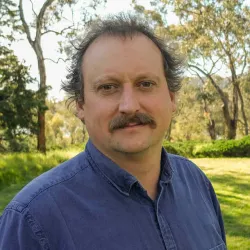Dr Paul Wyrwoll

Content navigation
About
Dr Paul Wyrwoll is Research Fellow at the ANU Institute for Water Futures working on the economics and governance of water systems in Australia and the Asia-Pacific.
Paul is an environmental and resources economist whose previous research has encompassed: modelling the regulation of multipurpose hydropower reservoirs; the design and application of water pricing; and the resilience of social-ecological systems under risks and uncertainty. A central focus of his applied research is integrating technical analysis into decision-making.
Previously, Paul was Research Fellow at the ANU Centre for Climate and Energy Policy, General Manager of the Food Energy Environment Water Network and Managing Editor of the Global Water Forum. He has also worked as a consultant and practitioner on climate change and natural resources management in the Lower Mekong Basin.
We are doing high-impact, interdisciplinary research that takes a long-term view of water management. I am proud that our work is founded on values and objectives that support water justice.
Affiliations
Research interests
Water economics is an important part of everyone's lives. It is about how we use water, when and where we use it, and how we balance competing water values. Human societies need to make better decisions around the economics of water management, particularly as we adapt to climate change. I am excited about the Institute for Water Futures informing, supporting, and enabling those decisions within Australia and across our region. We are doing high-impact, interdisciplinary research that takes a long-term view of water management. I am proud that our work is founded on values and objectives that support water justice. The reason I do research is that I believe my work can inform positive social change - I’m grateful to be surrounded by colleagues who are also focused on engaging with and learning from people, sharing knowledge with decision-makers, and contributing to public discourse on sustainable water management.
Projects
- Place Based Learning (PEBLE) , Principal investigator
